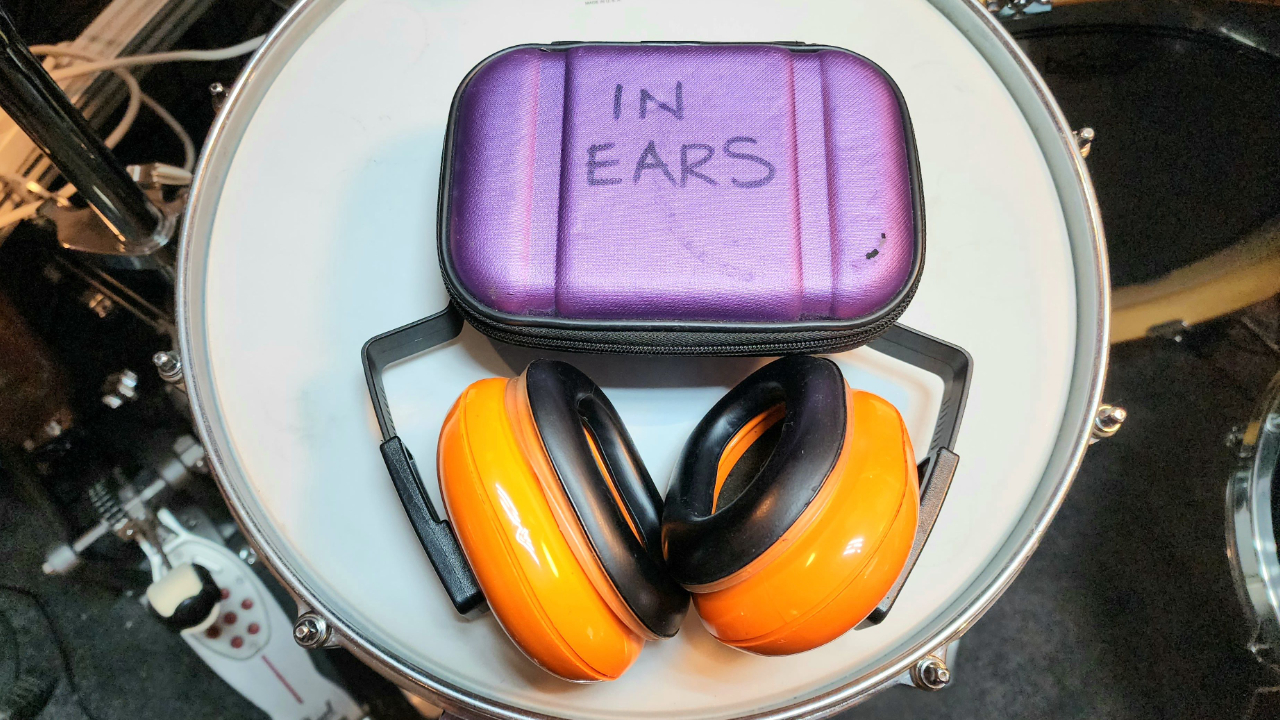The Importance Of Protecting Your Hearing
Feb 20, 2023
Hearing health is essential for drummers as exposure to loud sounds can cause irreversible hearing damage. Here are some tips for taking care of your hearing:
-
Wear hearing protection: Always wear hearing protection, such as earplugs or noise-cancelling headphones, when playing or practicing on the drums. Earplugs designed for musicians can help reduce the volume of the drums without distorting the sound.
-
Take breaks: Take breaks during long practice or performance sessions to give your ears a rest. The National Institute for Occupational Safety and Health (NIOSH) recommends taking a break for 10 minutes every hour when exposed to noise levels of 85 decibels or higher.
-
Adjust your playing volume: Keep your drumming volume at a safe level. Adjust the volume of your drum set to match the volume of other instruments in the band or the music you are playing along with. A good rule of thumb is to keep the volume at a level where you can still hear conversation without shouting.
-
Monitor your hearing: Get your hearing checked regularly by an audiologist. They can identify any hearing loss and provide recommendations for hearing protection and other preventive measures.
-
Limit exposure to loud sounds: Limit your exposure to loud sounds in your daily life. Avoid prolonged exposure to loud music or other loud sounds, and use earplugs in loud environments such as concerts or sporting events.
-
Use in-ear monitors: Using in-ear monitors can help reduce the need for loud onstage amplification and reduce the risk of hearing damage. In-ear monitors can provide a clear, direct sound to the musician without the need for large, on-stage monitors. Don't have a set of IEM's? Check out our review of the 10 of the best models available today.

-
Be aware of your surroundings: Be aware of your surroundings when playing the drums. If you are practicing or performing in a small, enclosed space, the sound may be more intense and potentially damaging to your hearing. Take extra precautions when playing in these environments.
-
Use sound-absorbing materials: Use sound-absorbing materials such as rugs, carpets, and acoustic panels in your practice space or recording studio. These materials can help reduce the overall volume of the drums and improve the acoustics of the room.
-
Rest your ears: Rest your ears after loud exposure. Avoid exposing your ears to loud sounds immediately after a performance or practice session. Give your ears time to rest and recover before exposing them to loud sounds again.
-
Educate others: Educate your bandmates, sound engineers, and others about the importance of hearing protection. Encourage them to use earplugs or other hearing protection when exposed to loud sounds. By working together, you can create a safer and healthier musical environment.

What is tinnitus?
Tinnitus is a condition where an individual hears a ringing or buzzing sound in their ears, despite the absence of external sounds. Tinnitus can be caused by a variety of factors, including loud noise exposure, age-related hearing loss, and head injuries. For drummers, loud noise exposure is the most common cause of tinnitus.
Drumming involves the use of cymbals, drums, and other percussion instruments, all of which produce loud sounds that can damage hearing if not properly protected. When a drummer is repeatedly exposed to loud sounds over a long period, the inner ear's sensory cells become damaged. This damage results in the cells sending signals to the brain that are not related to external sound, resulting in the perception of ringing or buzzing sounds.
One of the biggest factors that increase the risk of developing tinnitus is prolonged exposure to high decibel levels. As drummers are often exposed to high decibel levels for extended periods during rehearsals and performances, they are at a higher risk of developing tinnitus. Additionally, some drummers may not use hearing protection, further increasing their risk of developing tinnitus.
Another contributing factor is the type of drumming that a drummer engages in. For instance, playing in a small enclosed space can increase the likelihood of developing tinnitus since sound waves bounce off the walls, leading to more significant sound exposure. Similarly, drummers who play at high volumes can damage their hearing much more quickly than those who play at lower volumes.
In conclusion, drummers are at risk of developing tinnitus due to the loud sounds they are exposed to during rehearsals and performances. While tinnitus is often not curable, it can be prevented by wearing hearing protection, taking breaks from exposure to loud sounds, and reducing the volume of the instruments during rehearsals and performances. Therefore, it is crucial for drummers to take care of their hearing by implementing appropriate measures to reduce their exposure to loud sounds.

